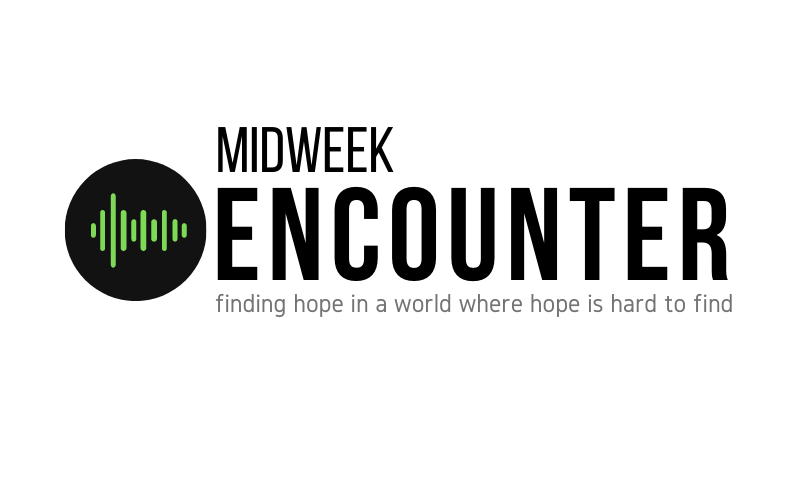



 This is the nineteenth sermon or teaching from one message that Jesus preached on a hillside years ago. It is just as hard to grasp it in nineteen sermons as it was in one sermon 2000 years ago. The disciples heard this first and thankfully we have the record of the New Testament that reminds us of how long they took in working it into their lives.
This is the nineteenth sermon or teaching from one message that Jesus preached on a hillside years ago. It is just as hard to grasp it in nineteen sermons as it was in one sermon 2000 years ago. The disciples heard this first and thankfully we have the record of the New Testament that reminds us of how long they took in working it into their lives.
I don’t offer that as an excuse for nominal Christianity. As God shows us an area we should focus on and grow more like Him it is our responsibility to take it seriously and move in His direction.
Today I want to sum up this great sermon of our Lord (The Sermon on the Mount) by leaving you with four takeaway thoughts. The case could be made that last week’s sermon was really the end of the meat of Jesus message but you can’t discount these final words. They are the conclusion, the wrap up, or maybe the post-script but they are critically important as we prepare to move on to other subjects and places in the Bible over the next few weeks.
The call of Christ is for discipleship. We are called to be a part of the “Society of Jesus,” if you will. The idea is that Christ followers find our Lord so admirable and attractive that we constantly seek to be in His presence for guidance, instruction and help in every area of our lives.
The effect of a committed continuous study under Christ teaching would be that we learn how to do everything we do in the name of Christ. We live our lives on His behalf or in His place as if He were doing it. This final teaching is about living in a way that routine obedience to God and His word is just that, routine. It becomes a normal way to live one’s life.
If you are not a continual student of Jesus Christ yet read the promises of the Bible and try to claim them for yourself you would be like the person trying to cash a check on another person’s account.
Jesus gives us four word pictures to show us the pathway into the community of prayerful love where people treat others the way they would like to be treated. Where doing God’s will is what you do because you delight in the Lord and in His ways.  1. Take the Narrow Way
1. Take the Narrow Way
13 “You can enter God’s Kingdom only through the narrow gate. The highway to hell[f] is broad, and its gate is wide for the many who choose that way. 14 But the gateway to life is very narrow and the road is difficult, and only a few ever find it.
There are few scriptures that are as plain as these. It is simple really. There are two ways to go through your short time on this earth. You can spend your time living for Christ or you can spend your time living your own way. One way is narrow and the other is broad. These verses call for a decision and every one of us in this room has made a choice one way or the other.
In Luke 6:46, Jesus teaches on the subject of “Why do you call me Lord, Lord and do not do what I say?” Try to picture yourself someday standing before God and explaining why you did not do what He said was best. Christ left us a way into living life as it was meant to be, as we were created to live it. It is called discipleship. The final topic of this message on the mount is routine obedience from the heart.
It means that when faced with the choices that come our way on a daily basis we choose Jesus and His way. It means that we make a choice. Have you made a decision for Christ and His way today or do you continue to live your live as an observer? Maybe you are even a fan of Jesus but you are not in the game. Serving God has always involved a decision.
Moses told the people of his day: “See, I set before you today life and prosperity, death and destruction . . .Now choose life, so that you and your children may live.” (Deut. 30:15,19) Joshua spoke to the people and said these words, “Choose for yourselves this day whom you will serve.” (Joshua 24:15) Jeremiah wrote on behalf of God: “Futhermore, tell the people, ‘This is what the Lord says: See I am setting before you the way of life and the way of death’” (Jer. 21:8) Peter spoke these words: “Repent and be baptized, every one of you, in the name of Jesus Christ for the forgiveness of your sins. And you will receive the gift of the Holy Spirit.” (Acts 2:38)
Following Christ is takes initiative, drive and “want to.” You and I have to determine in our hearts that we will choose to live our lives God’s way no matter how counter to the culture that seems to be.
When faced with temptation: you go God’s way.
When faced with peer pressure: you go God’s way.
When faced with selfish desires: you go God’s way.
When it seems as though no one else is going God’s way: you go God’s way.
Are you taking the narrow way? Are you going God’s way?  2. Choose your Relationships Carefully
2. Choose your Relationships Carefully
15 “Beware of false prophets who come disguised as harmless sheep but are really vicious wolves. 16 You can identify them by their fruit, that is, by the way they act. Can you pick grapes from thorn bushes, or figs from thistles? 17 A good tree produces good fruit, and a bad tree produces bad fruit. 18 A good tree can’t produce bad fruit, and a bad tree can’t produce good fruit. 19 So every tree that does not produce good fruit is chopped down and thrown into the fire. 20 Yes, just as you can identify a tree by its fruit, so you can identify people by their actions.”
These verses are very straight forward. They mean what they say and say what they mean. They do raise a couple of questions so let me try to answer them. First, who are the prophets in our lives and how can we tell they are false or true?
Prophets are anyone who leads others in the context of the body of Christ or the church. Prophets are those who speak and lead others under the pretext of speaking for God. This can be paid pastors or it could be laypeople that speak and teach others from God’s word. It could be a neighbor, a co-worker or even a relative but you need to be very careful where you “hitch your wagon.”
Unfortunately there are people who sometimes use the name of Christ to promote their own agenda. Make sure that the person you allow to disciple and teach you lives what they preach. Make sure that their lives match up the word of God.
How can you tell if they are a true prophet or not? (Boice)
A. There is no “straight gate” preaching or teaching
They never address the “narrow way.” He or she may say some very good things and may even use the Bible to support what they teach but they never challenge you to follow Christ as though He were the only way to God. Christ must be at the center of the teaching for it to be true.
We need to be very careful here and not set ourselves up as little judges yet at the same time we are to be wise and ask God for wisdom to know the truth.
B. No disturbing doctrines
Jeremiah in the Old Testament wrote: “They dress the wounds of my people as though it were not serious. Peace, peace they say when there is no peace.” Arthur Pink wrote these words, “There is nothing in their preaching which searches the conscience and renders the empty professor uneasy, nothing which humbles and causes their hearers to mourn before God; but rather that which puffs up, makes them pleased with themselves and to rest content in false assurance.”
Today there are some writers and teachers that are that appealing to a mass of twenty and thirty something’s who grew up in the church during the seventies, eighties and even the nineties. I will admit that those decades appear to be some of the most lukewarm and nauseating years of church history in America but the teaching that is gaining popularity is a watered down, gutless, tepid or lukewarm shadow of what Jesus really had to say. These writers have embraced the culture to the point that it appears they have no doctrines that would be sure enough to shake or disturb anyone. They question everything. The sad news is that there are people right in this room who instead of trying to figure out that Jesus just meant what He said, as tough and as hard as it is, love to find a modern or post modern writer who will question everything.
In fact, Brian McClaren goes so far as to suggest that the followers of other religions can also be followers of Christ in practical terms without leaving other religions or identifying with Christianity. John Macarthur writes, “McClaren is leading the parade for those who do not seem to think wrong beliefs, superstition, false religion, and false gods are evils that people need to be delivered from.” (Macarthur, The Truth War pg. 34)
C. The test of good works
“By their fruit you will know them. . .” That means that true teachers or prophets will live out what they say. They will practice what they preach.
Don’t sell out for cheap grace. In The Cost of Discipleship, Bonheoffer writes, “Cheap grace is the preaching of forgiveness without requiring repentance, baptism without church discipline, communion without confession, absolution without personal confession. Cheap grace is grace without discipleship, grace without the cross, grace without Jesus Christ, living and incarnate.”
Choose your relationships in the church and in your faith life carefully. Make sure that you are investing your time with a group of people that are seeking to know and do the will of God. Life is too short to waste it doing our own things and missing God’s will.  3. Be Authentic
3. Be Authentic
21 “Not everyone who calls out to me, ‘Lord! Lord!’ will enter the Kingdom of Heaven. Only those who actually do the will of my Father in heaven will enter. 22 On judgment day many will say to me, ‘Lord! Lord! We prophesied in your name and cast out demons in your name and performed many miracles in your name.’ 23 But I will reply, ‘I never knew you. Get away from me, you who break God’s laws.’”
This warning clearly is about nominal Christianity. In other words, don’t be a peripheral Christian. Don’t linger around the edge so to speak. Live the word of God. Love the word of God. Live your life in the power of the Holy Spirit.
“Only those who do the will of my Father in heaven will enter.” Doing God’s will is what the Sermon on the Mount has been about. If you go back and think about everything we have studied together it is a mountain of teaching but it all goes back to being like Jesus. Knowing, being and doing the will of God is a mark of authentic Christ following.
Again let me quote from Arthur Pink, “Never were there so many millions of nominal Christians on earth as there are today, and never was there such a small percentage of real ones. . .” Let me just cut to the chase here today. There is more to authenticity then believing a few church doctrines and doing a few good works and then living the rest of your life free of God’s reach and call. If you are an authentic Christ follower, God’s hand will be in everything you do. Every relationship, every action, every moment of every day. When the lights are on and when they are off. When every one is looking and when no one is looking. It is about doing the will of the Father.
The great reformer Martin Luther went through seminary and came out to lecture on the Psalms, Romans, Galatians, Hebrews and Titus. He would have embraced all the major doctrines of the church. He believed that Christ died on the cross for our sins. He believed that Christ was the son of God. He believed that Christ was returning some day to judge the world. But the fact was that Luther did not know Christ personally Jesus was God but not his God. Jesus was Lord but not his Lord. Jesus was savior but not his Savior. He longed for peace and a personal change on the inside. It was that transformation that led to the reformation of the church in his day. (Boice)
We are called to do the work of the Father. There are churches who totally throw out works and say everything is our Christian life is about faith. The fact is the Bible has a lot to say about works. You can’t have one without the other. If you are a person of faith you will do the works of the Father. It is like having two oars in the water. It is the only way to go forward.
In one of the great battles that took place between the Greeks and the Persians just prior to the Greek Golden Age, there was an incident that perfectly illustrates this principle. The Persian fleet had sailed from the Bosporus out along the Macedonian coast and then down the edge of Greece to Attica. I finally met the Greek ships in the bay of Salamis just off Athens. The Greek ships were lighter and quicker; the Persian ships were cumbersome. So, in the battle that followed, the Greeks made short work of the Persians. In one particular encounter a Greek ship managed to sail close to a large Persian vessel and brush by its side. Because it had done this quickly, the Persian oarsmen did not have time to draw their oars in, although the Greeks did. The result was that the Greek ship broke off all the oars on that side of the Persian vessel. Few on the Persian ship realized what had happened, and because the oarsmen on the other side continued rowing, the ship swung around in a circle leaving a fresh set of oars visible to the Greek captain. The Greeks then reversed their ship, trimmed off the other set of oars, and sank the enemy.
It illustrates what happens when we have faith without works and works without faith! You can generate a big flurry of activity with one oar and you can get attention but you will just be going around in circles spiritually speaking. Authentic Christianity is a personal relationship to Jesus Christ through faith resulting in a new life that moves forward and in increasingly more like Him in works.  4. Build on a Solid Foundation
4. Build on a Solid Foundation
24 “Anyone who listens to my teaching and follows it is wise, like a person who builds a house on solid rock. 25 Though the rain comes in torrents and the floodwaters rise and the winds beat against that house, it won’t collapse because it is built on bedrock. 26 But anyone who hears my teaching and doesn’t obey it is foolish, like a person who builds a house on sand. 27 When the rains and floods come and the winds beat against that house, it will collapse with a mighty crash.”
28 When Jesus had finished saying these things, the crowds were amazed at his teaching, 29 for he taught with real authority—quite unlike their teachers of religious law.
Jesus ends this teaching with a story that is simple enough that even a child could understand it. From my first memories this story was drilled into me. Some of you will remember the words of this profound little song:
The wise man built his house upon the rock
The wise man built his house upon the rock
The wise man built his house upon the rock
And the rain came tumbling down
Oh, the rain came down
And the floods came up
The rain came down
And the floods came up
The rain came down
And the floods came up
And the wise man's house stood firm.
The foolish man built his house upon the sand
The foolish man built his house upon the sand
The foolish man built his house upon the sand
And the rain came tumbling down
Oh, the rain came down
And the floods came up
The rain came down
And the floods came up
The rain came down
And the floods came up
And the foolish man's house went "splat!" [clap hands once]
Do I really need to say anymore?
What are you building on today? What are you investing your life in? What are you giving your best time and talent to these days? Christ is the rock that we are to build our lives on and around. Piece by piece we put together our lives everyday and the only way for it to stand the test of time here or in eternity is to build on Christ.
William Borden went to Yale University quite a few years ago. He went on to become a missionary candidate planning to work in China. When he made this life choice to invest his life in this service, many of his friends thought he was a fool. He had come from a family of both wealth and influence. He could have done anything he wanted with a Yale education. But William Borden had heard the call of God and he ignored the reasoning of his friends who reminded him of the life he could have if he didn’t go to China.
While in Egypt, on the way to China and even before he had much of a chance to do anything, he became sick. Soon it became evident to everyone including himself that that he was going to die. At this point he could have easily said to himself, “What a waste. My friends were right. I should have stayed home.” But Borden didn’t think that way. As he lay on his death bed in Egypt, he scribbled a farewell note to his friends. He wrote these words.: “No reserve, no retreat, and no regrets.”
You see what you want to hear at the end of your life on this earth ought to be these words, “Well done good and faithful servant!. . . come and share your Master’s happiness.” (Matthew 25:21,23)
My hope is built on nothing less than Jesus blood and righteousness;
I dare not trust the sweetest frame, But wholly lean on Jesus name.
On Christ, the solid Rock, I stand; All other ground is sinking sand.
Here are the final words of our Lord as interpreted by Eugene Peterson:
13-14"Don't look for shortcuts to God. The market is flooded with surefire, easygoing formulas for a successful life that can be practiced in your spare time. Don't fall for that stuff, even though crowds of people do. The way to life—to God!—is vigorous and requires total attention.
15-20"Be wary of false preachers who smile a lot, dripping with practiced sincerity. Chances are they are out to rip you off some way or other. Don't be impressed with charisma; look for character. Who preachers are is the main thing, not what they say. A genuine leader will never exploit your emotions or your pocketbook. These diseased trees with their bad apples are going to be chopped down and burned.
21-23"Knowing the correct password—saying 'Master, Master,' for instance— isn't going to get you anywhere with me. What is required is serious obedience—doing what my Father wills. I can see it now—at the Final Judgment thousands strutting up to me and saying, 'Master, we preached the Message, we bashed the demons, our God-sponsored projects had everyone talking.' And do you know what I am going to say? 'You missed the boat. All you did was use me to make yourselves important. You don't impress me one bit. You're out of here.'
24-25"These words I speak to you are not incidental additions to your life, homeowner improvements to your standard of living. They are foundational words, words to build a life on. If you work these words into your life, you are like a smart carpenter who built his house on solid rock. Rain poured down, the river flooded, a tornado hit—but nothing moved that house. It was fixed to the rock.
26-27"But if you just use my words in Bible studies and don't work them into your life, you are like a stupid carpenter who built his house on the sandy beach. When a storm rolled in and the waves came up, it collapsed like a house of cards."
28-29When Jesus concluded his address, the crowd burst into applause. They had never heard teaching like this. It was apparent that he was living everything he was saying—quite a contrast to their religion teachers! This was the best teaching they had ever heard.”
Are you a Christ follower? Are you building your life on a solid foundation or are you drifting through life with little or no meaning? Are you hungering to do something with your life that will matter in the end? I invite you today to seek God’s will and way with your life. Invest in Him and He will transform you from the inside out.